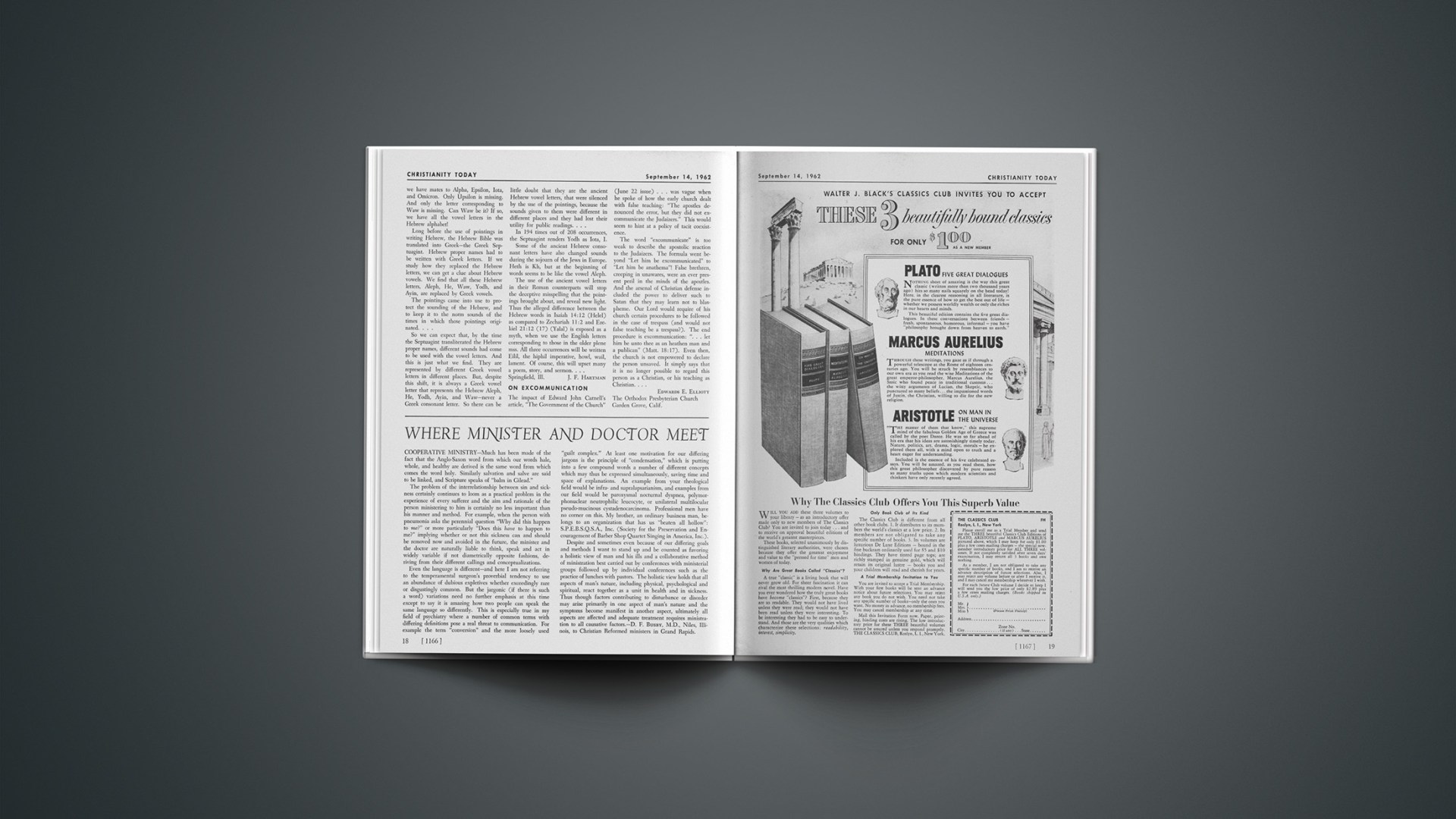Cooperative ministry—Much has been made of the fact that the Anglo-Saxon word from which our words hale, whole, and healthy are derived is the same word from which comes the word holy. Similarly salvation and salve are said to be linked, and Scripture speaks of “balm in Gilead.”
The problem of the interrelationship between sin and sickness certainly continues to loom as a practical problem in the experience of every sufferer and the aim and rationale of the person ministering to him is certainly no less important than his manner and method. For example, when the person with pneumonia asks the perennial question “Why did this happen to me?” or more particularly “Does this have to happen to me?” implying whether or not this sickness can and should be removed now and avoided in the future, the minister and the doctor are naturally liable to think, speak and act in widely variable if not diametrically opposite fashions, deriving from their different callings and conceptualizations.
Even the language is different—and here I am not referring to the temperamental surgeon’s proverbial tendency to use an abundance of dubious expletives whether exceedingly rare or disgustingly common. But the jargonic (if there is such a word) variations need no further emphasis at this time except to say it is amazing how two people can speak the same language so differently. This is especially true in my field of psychiatry where a number of common terms with differing definitions pose a real threat to communication. For example the term “conversion” and the more loosely used “guilt complex.” At least one motivation for our differing jargons is the principle of “condensation,” which is putting into a few compound words a number of different concepts which may thus be expressed simultaneously, saving time and space of explanations. An example from your theological field would be infra-and supralapsarianism, and examples from our field would be paroxysmal nocturnal dyspnea, polymorphonuclear neutrophilic leucocyte, or unilateral multilocular pseudo-mucinous cystadenocarcinoma. Professional men have no corner on this. My brother, an ordinary business man, belongs to an organization that has us “beaten all hollow”: S.P.E.B.S.Q.S.A., Inc. (Society for the Preservation and Encouragement of Barber Shop Quartet Singing in America, Inc.).
Despite and sometimes even because of our differing goals and methods I want to stand up and be counted as favoring a holistic view of man and his ills and a collaborative method of ministration best carried out by conferences with ministerial groups followed up by individual conferences such as the practice of lunches with pastors. The holistic view holds that all aspects of man’s nature, including physical, psychological and spiritual, react together as a unit in health and in sickness. Thus though factors contributing to disturbance or disorder may arise primarily in one aspect of man’s nature and the symptoms become manifest in another aspect, ultimately all aspects are affected and adequate treatment requires ministration to all causative factors.—D. F. BUSBY, M.D., Niles, Illinois, to Christian Reformed ministers in Grand Rapids.










